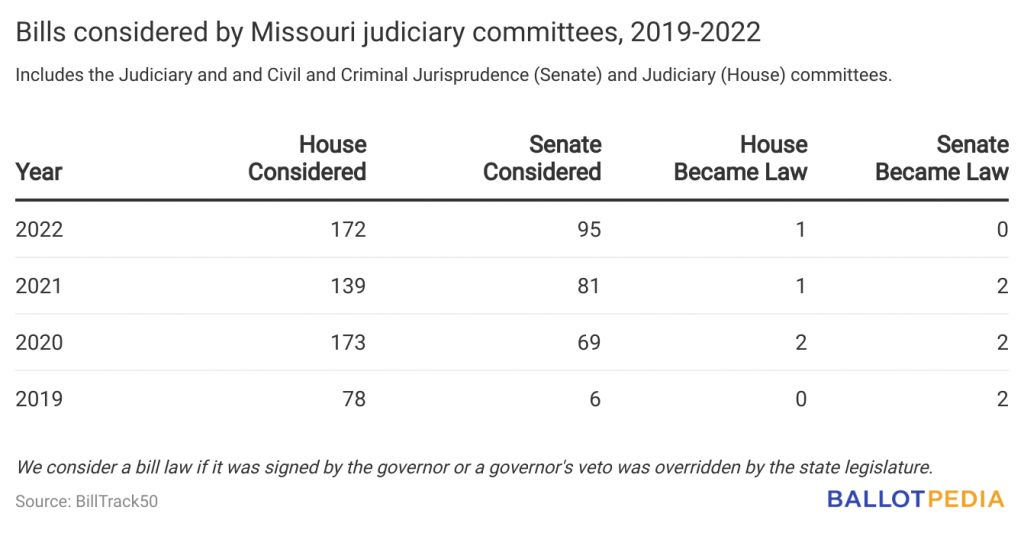In 2022, the Missouri General Assembly considered the highest number of judiciary bills since 2019, but passed the fewest number of bills. The General Assembly considered 267 judiciary bills during the 2022 legislative session and passed one bill. The next highest number of bills considered was in 2020 (242 bills) and 2 bills were passed each year from 2019 to 2021.
Judiciary bills have been adopted into every year since 2019. In order for a bill to become law, it must pass both the House and Senate and be signed by Gov. Mike Parson (R) or the legislature overrides a veto from the governor. The bill that became law in 2022 was signed on June 11 after the end of the legislative session.

There are two judiciary committees in the Missouri Legislature. The Senate Judiciary and Civil and Criminal Jurisprudence Committee and the House Judiciary Committee. The Missouri General Assembly has 66 total standing committees. The Missouri Senate has 20 standing committees, the Missouri House of Representatives has 34 standing committees, and there are 12 joint legislative committees in the Missouri Legislature. The number of special committees fluctuates each session. The subject matter of these committees is more specialized than the standing committees, so most of these committees have been assigned less bills on average than the standing committees.
The Missouri General Assembly is the state legislature of Missouri. It is a bicameral legislature composed of a 34-member Senate and a 163-member House of Representatives. Senators are term limited to two four-year terms and representatives are limited to four two-year terms. The Missouri General Assembly is a part-time legislature. The 2022 session convened on Jan. 5 and will adjourn May 13.
Missouri is one of 23 Republican state government trifectas in the U.S. The Republican Party controls the office of governor and both chambers of the General Assembly. There is a 24-10 Republican majority in the Senate and a 108-49 majority in the House. The Republicans have a veto-proof supermajority in both chambers. In the event of a veto issued by Gov. Parson, the Republican majority is large enough to override the veto without any votes from members of the Democratic Party.
Additional reading:


